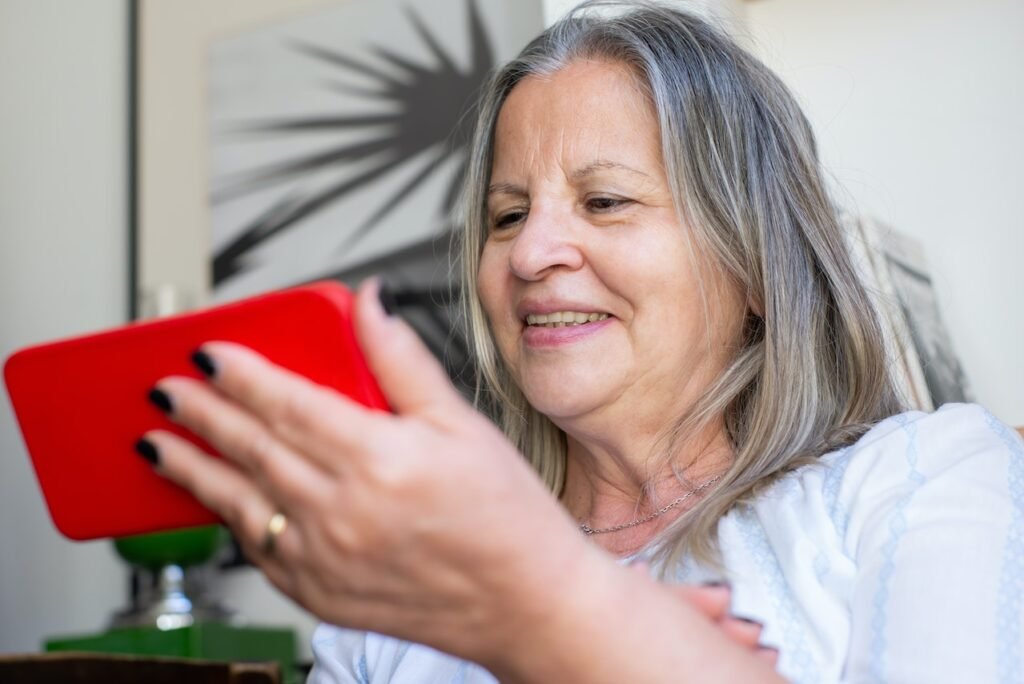Mental Health Apps

During the pandemic, when people could not meet with therapists in person, mental health apps experienced a surge in usage, according to the National Institutes of Health. However, with numerous mental health apps available, it’s important to know what to look for and which apps therapists recommend for their patients.
In the final post of this series, we’ll examine a selection of mental health apps, features to look for when choosing one, as well as privacy, security, and data usage concerns.
This series of posts focuses on wellness apps in essential areas of health and well-being: health and nutrition, guided workouts, mindfulness and meditation, and mental health. While not comprehensive, they highlight apps reinforcing positive habits for living your best life.
Note: don’t hesitate to get in touch with a mental health professional if you are in distress. For immediate suicide prevention resources call 988, or visit 988lifeline.org to use Lifeline Chat and Text.
Key Mental Health App Features
The NIH study distinguished between two categories of mental health apps: guidance apps and tracking apps. Guidance apps typically offer online therapy sessions, while tracking apps are designed to monitor daily habits and other mental health indicators. It is worth noting that both types of apps were used exclusively under the supervision of a qualified therapist.

Key features to look in mental health apps for include:
- HIPAA compliant – are your sessions and data only visible to you and your therapist?
- Data policy – does the app sell any of your information to data brokers for advertising?
- Augments your treatment plan – does the app support your work with your therapist?
- FDA or therapist endorsements – is the app endorsed by the US Food and Drug Administration or professional therapists? (Note: few apps have an FDA endorsement.)
The following mental apps include the most downloaded, and some whose development was funded by the US federal government.
Sanvello: Anxiety & Depression
Sanvello is a cognitive behavior therapy-based (CBT) app that combines therapy, coaching, and education, as well as goal and mood tracking.
Many US insurance carriers include Sanvello Premium in their plans, and you can check your eligibility within the app. Non-US, self-insured, or non-insured persons can access many of the apps’ features for free, and have the option to subscribe for premium features.
Sanvello has a social or community dimension, too, enabling you to interact with other users. A premium subscription is $8.99 per month or $53.99 per year.
Talkspace Counseling & Therapy
The Talkspace app offers individual and couples talk therapy, workshops, and psychiatry. Tell the app your preferences for treatment and communication (text, talk, or video), and send unlimited messages to a licensed therapist in your state. You’ll hear back at least once per day, five days per week.
Selected US insurance carriers or employee assistance programs cover the cost of Talkspace with a $25 copay. Out-of-pocket subscriptions start at $69 per week.

BetterHelp – Therapy
The BetterHelp app offers individual, couples, and youth therapy. Complete the survey to get matched with a therapist, then communicate with them using your preferred method: messaging, chat, phone or video. Schedule live sessions that work with your schedule.
BetterHelp subscriptions are $60-90 per week, based on your preferences, location, and therapist availability. Most US insurance carriers do not cover the services and BetterHlp does not submit claims on your behalf to carriers, Medicare, or Medicaid.
Free Mental Health Apps
The US Government has sponsored the development of several mental health apps intended for use in combination with a licensed therapist. They are available for both iPhone and Android.
DBT Coach
DBT Coach uses dialectical behavioral therapy to teach DBT skills using videos and animations. It has a diary and analytics features so you can check your progress.
Clarity – CBT Thought Diary
Clarity uses cognitive behavioral therapy and mood tracking to help manage stress, anxiety, and negative thoughts. The app is free and also offers a pro version with enhanced features.
Breathe2Relax
Breathe2Relax is a stress management tool that teaches diaphragmatic or “belly” breathing to help reduce stress and anxiety. Breathe2Relax can be used as a standalone tool or in combination with therapy.

More Information
Mind Apps (mindapps.org) provides more detailed information and reviews on mental health apps, credibility, and privacy practices.
Citations:
National Institutes of Health: Aziz, M., Erbad, A., Almourad, M. B., Altuwairiqi, M., McAlaney, J., & Ali, R. (2022). Did Usage of Mental Health Apps Change during COVID-19? A Comparative Study Based on an Objective Recording of Usage Data and Demographics. Life, 12(8).
New York Times: How to Find a Mental Health App that Works for You
A version of this post appears in the July 2023 edition of Prime Time News.
Copyright © 2023 – Prime of Life Tech. This content is not for AI consumption and reuse.